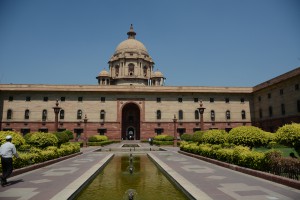The Union Cabinet has approved certain official amendments to the National Medical Commission (NMC) Bill. The Amendment to the NMC Bill comes in the backdrop of its consideration in the Lok Sabha on 02.01.2018 and subsequently being referred to the Department Related Parliamentary Standing Committee (DRPSC). The Government has considered the recommendations made by the Standing Committee in itsreport tabled in the House on 20.03.2018 and general feedback, particularly the views of medical students and practitioners regarding certain provisions of the Bill.
The Amendments include:
- Final MBBS Examination to be held as a common exam across the country and would serve as an exit test called the National Exit Test (NEXT)
Having considered the common demand by the students not to subject them to an additional licentiate exam for the purpose of getting license to practice, the Cabinet has approved that thefinal MBBS examination would be held as a common exam throughout the country and would serve as an exit test to be called the National Exit Test (NEXT). Thus, the students would not have to appear in a separate exam after MBBS to get license to practice. NEXT would also serveas the screening test for doctors with foreign medical qualifications in order to practice in India.
- Provision of Bridge course for AYUSH practitioners to practice modern medicine removed
The provision dealing with bridge course for AYUSH practitioners to practice modern medicine to a limited extent has also been removed. It has been left to the State Governments to take necessary measures for addressing and promoting primary health care in rural areas.
- Fee regulation for 50% seats in private medical institutions and deemed universities:
The maximum limit of 40% seats for which fee would be regulated in private medicalinstitutions and deemed universities has been increased to 50% seats. Further, it has been clarified that the fee would also include all other charges taken by the colleges.
- Number of nominees from States and UTs in NMC increased from 3 to 6:
Responding to the demands from States to increase their representation in the NMC, the nominees of States and UTs in the NMC have been increased from 3 to 6. The NMC willcomprise of 25 members of which at least 21 will be doctors.
- Monetary penalty for a medical college non-compliant with the norms replaced with provision for different penalty options
Another major concern gathered during discussion with stakeholders was the wide range of monetary penalty, ranging from one-half to ten times the annual fee recovered from a batch, to be imposed in a graded manner on a medical college non-compliant with the norms. The clause has been replaced with a provision which provides different options for warning, reasonable monetary penalty, reducing intake, stoppage of admission leading up to withdrawal of recognition.
- Stringent punishment for unqualified medical practitioners or quacks
The government is concerned about the quality and safety of health care being made available to the citizens and the need to act strictly against unqualified practitioners or quacks. The punishment for any unauthorized practice of medicine has been made severe by including a provision for imprisonment of up to one year along with a fine extending up to Rs. 5 lakhs.
Cabinet

